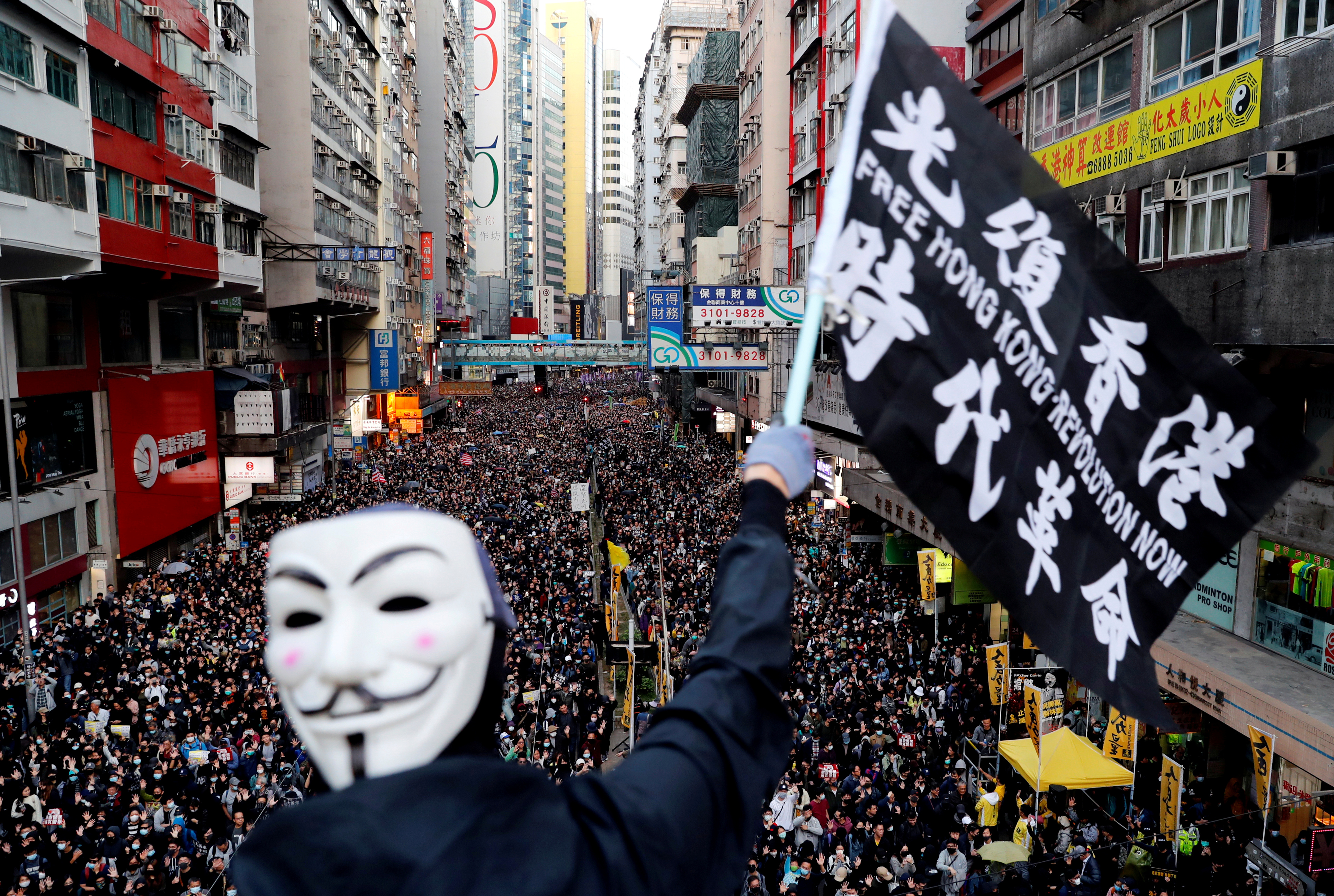
Taipei, Taiwan – Hong Kong activists and political exiles may soon find it harder to stay in Taiwan long-term if reported plans to shake up residency requirements move forward.
Taiwan’s Liberty Times earlier this month reported that Hong Kongers may be required to have lived on the island for longer to qualify for permanent residency amid concerns the current rules could be exploited by Chinese spies.
The newspaper, which is associated with the ruling Democratic Progressive Party, said Taiwan’s Mainland Affairs Council – which oversees the island’s policies on Hong Kong and fellow Chinese territory Macau – was considering raising the residency period from one to four years, citing an unnamed government official.
Under the current rules, certain migrants from Hong Kong and Macau can qualify for permanent residency more easily than other foreign nationals, which are required to have five years of residency.
Those eligible for fast-track residency include migrants with family links to Taiwan and those who have “contributed to [Taiwan’s] efforts to promote its policies and objectives toward Hong Kong and Macao”, which can include democracy protesters and political exiles.
The Mainland Affairs Council did not confirm whether the proposed changes would go ahead.
But a spokesperson said the government “will continue to make overall assessments” of the issue, including the national security situation, given “the rapid changes in the situation in Hong Kong and Macau”.
If passed, the changes would be another blow to Taiwan’s image as a haven for dissidents and critics of Beijing.
Taiwan, a self-governing democracy that China claims as its territory, initially welcomed Hong Kong democracy activists who fled the city after authorities launched a sweeping crackdown on dissent in response to mass protests in 2019.
Taiwanese President Tsai Ing-wen’s administration opened a dedicated Taiwan-Hong Kong Exchange Services Office to assist arrivals from Hong Kong the day after Beijing imposed a national security law on the city that drastically curtailed residents’ rights and freedoms.
But in the years since, some Hong Kong exiles have found Taiwan life more difficult than expected, facing issues ranging from lower salaries and excessive red tape to language barriers, according to media reports.
Between January 2020 and March 2023, 32,364 Hong Kongers and 4,858 Macanese were granted Taiwanese residency permits.
Another 3,100 and 395, respectively, received permanent residency permits over the same period, according to immigration data, taking them a major step closer to citizenship.
The number of new residents from Hong Kong last year dropped to 8,945 after rising sharply in 2020 and 2021.
Applications have become more difficult for Hong Kongers since Taiwan was forced to close its unofficial consulate there in 2021, but popular feeling towards the city has also begun to change in Taiwan.

With pro-democracy voices and political opposition all but wiped out in Hong Kong, many Taiwanese see less and less distinction between Hong Kong and mainland China, said Brian Hioe, a non-resident fellow at the University of Nottingham’s Taiwan Studies Program.
The “temporary halo around Hong Kong” after 2019 has dimmed, Hio said, while most Taiwanese no longer support the “pan Chinese” identity they did during the Cold War.
There are also fears that Chinese spies could use Hong Kong residency to infiltrate Taiwan, particularly as the city’s share of mainland-born residents continues to grow and those born and raised under pre-1997 British rule emigrate elsewhere.
Taiwan is a major target of Beijing’s covert influence campaigns that seek to discredit the island’s pro-independence movement and spread misinformation about the government, military and social problems.
Beijing views Taiwan, whose formal name is the Republic of China, as a province that must be reunified with the mainland – by force if necessary – in a dispute that has raged since the end of the Chinese Civil War in 1949.
Wang Ting-yu, a Taiwanese legislator who sits on the Foreign Affairs and National Defense Committee, said Taiwan had tried to help Hong Kong protesters resettle on the island or move to Western countries but that it had also tried to keep a “low profile” and avoid attracting Beijing’s attention.
In 2020, 12 Hong Kongers facing charges, including arson and rioting, were intercepted by the Chinese coast guard while trying to flee to Taiwan by speedboat. A Chinese court later handed 10 members of the group sentences of between seven months and three years in prison.
Hong Kong’s crackdown on dissent has made it more difficult to carry out background checks on exiles and determine who has legitimate claims, Wang said, “but we are really trying very hard to work around that”.
“Since the Hong Kong government arrested many lawyers and reporters… it’s quite difficult to find the right kind of organisation to help Taiwan verify [protester] backgrounds,” Wang told Al Jazeera. “So it creates some difficulties but we are trying really very hard to work around that.”







